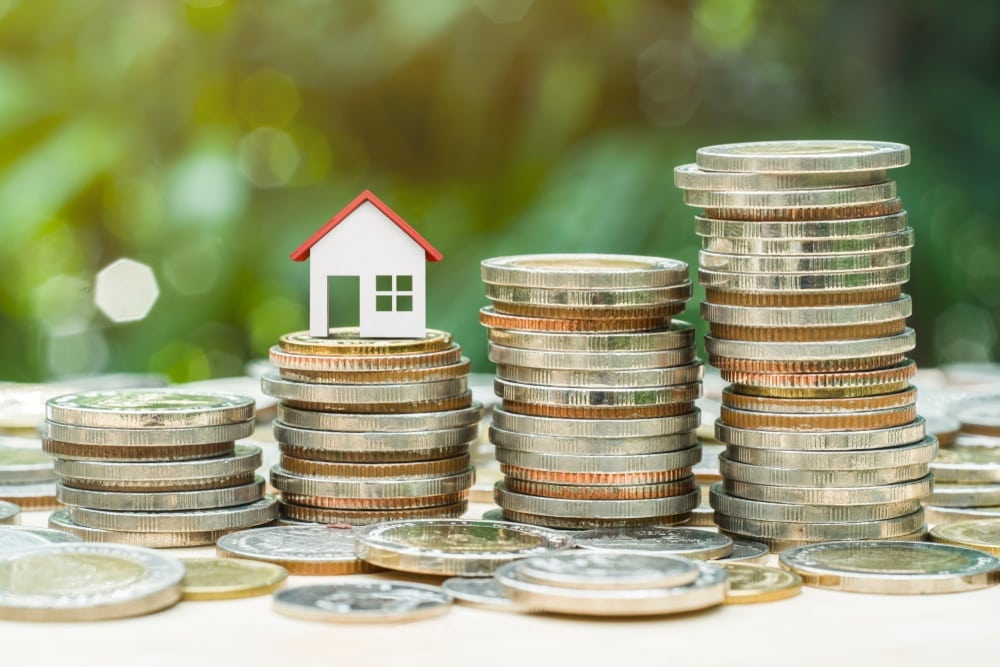7 Reasons You Should Pay Off Your Mortgage Before Retirement

The common wisdom in financial circles these days favors holding on to a big mortgage -- even into retirement.
The theory being, with mortgage interest rates at lows, the numbers dictate going for better returns by investing as much as you can in riskier assets.
If you're carrying credit card debt, pay that off first.
It saves you much more money than prepaying your mortgage, and interest on consumer debt isn't tax-deductible.
But there are good reasons to prepare for retirement by paying off your mortgage.
Here are seven of the most important to consider:
1. Paying Off the Mortgage Can Encourage You to Spend Less
Most likely you're saving too little for retirement, but the reality is, you're probably not saving more by choice.
We mistake needs for wants, and we end up squandering the income we earn in our lifetime.
Those who make a point to pay off their mortgage early will usually find a way to make extra payments, which will also increase their potential for a comfortable retirement because they simply spent less during their working years.
At retirement, you want to be certain that you'll have enough income to cover your monthly bills.
2. Buy Less Home on a Shorter, Fixed-Rate Mortgage
Your residence can be a wonderful investment, but the home you live in is an ongoing expense.
When you choose a shorter-term mortgage, you will not only save on interest during the life of the loan, but you will spend less on many other items, too, because the higher monthly mortgage payment will force you to buy a smaller place.
With lower property taxes, smaller maintenance bills and a smaller square footage to cool and heat, there will be more room in your budget for retirement savings.
3. Increase Your Retirement Withdrawal Rate
One of the most effective ways to increase the safe withdrawal rate from your nest egg is to be flexible with the withdrawals.
By cutting back whenever the market is down, you'll be able to increase the chances that your stash will last throughout retirement.
Once the big monthly mortgage bill is out of the way, you will have more flexibility to control your spending and your investment account withdrawals in retirement.
Don't prepay your mortgage with a lump sum of money taken out of an individual retirement account or 401(k).
You'll owe income taxes on it, if you hold a traditional account.
If you're working, add your extra dollars to tax-favored retirement accounts such as IRAs or 401(k)s.
Traditional accounts give you a current tax deduction, with earnings tax-deferred. Roth accounts let you accumulate your gains, tax-free.
4. One Less Thing to Worry About
Today's numbers do suggest potentially better returns if you invest the money you'd otherwise use to pay off a mortgage in riskier assets, but there are no guarantees that everybody will automatically make more money this way.
It's well known that actual returns for most people are well below what are promoted as market returns.
Will you be able to actually capture a solid enough return after taxes and expenses?
Are you confident everything will work out just because it does in theory?
5. Sleep Better at Night Without a Mortgage
Most advocates of keeping a mortgage are heavily discounting the benefits of being debt free.
Ask anyone who doesn't have to make monthly mortgage payments and they will tell you how great freedom truly feels.
People who don't have a mortgage also have fewer income worries because of their reduced cash flow needs.
With more confidence to speak their minds and pursue what they want, some people are better able to grasp new income-earning opportunities.
6. Get More From a Reverse Mortgage
If a reverse mortgage is your financial fallback position and you owe money on the property, consider this:
You must take at least that amount as a lump sum advance at closing and use it to pay off your debt at that time.
So, having a paid-off mortgage increases the amount of cash available to you in a single lump sum, credit line or monthly advance.
If you sell your house for a substantial profit and downsize, consider buying the new place for cash if you have enough cash left over to live on comfortably.
If needed, you can usually tap this home equity at a later date by getting a reverse mortgage.
7. Leave More to Your Heirs
If you want to leave the house to your children or someone else who doesn't have a lot of resources, you'd be doing them a favor to pay off the mortgage.
Otherwise, they may be faced with selling the house whether they want to or not.
Invest the Extra Money
Once you've paid off any consumer debt and funded your retirement account, it can make financial sense to invest extra savings in the market.
But only if you're going to put a substantial amount of that money into stock-owning mutual funds.
However, if you're keeping those savings in certificates of deposit, or in high-quality taxable bonds or bond mutual funds.
At today's interest rates, prepaying the mortgage looks like a better deal.
If you've carefully considered all of these reasons -- and placed your decision-making in the context of your other financial goals and commitments -- you're ready to prepare for retirement by paying off your mortgage.

